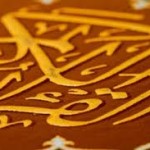Inheritance distribution between 4 daughters and 3 brothers
QUESTION:
Salaam, hope you’re well. I have a question regarding inheritance. My mum passed away and left her inheritance to her children. However, my brother sadly passed two months after my mum before we got to give him his share. My question is what do we do with his inheritance? He has 4 legitimate daughters, his sons were however born out of wedlock when he was quite young so we’re aware they don’t have the same rights as what they should have if they were born through wedlock and if they were Muslim. We do have another two brothers. My brother who has passed though he passed in ramadan alhamdulillah, he had many years of missed salah and fasts. That share of his inheritance who would it go to and would we be able to use it towards his fidya instead?
ANSWER:
In the Name of Allah, the Most Gracious, the Most Merciful.
As-salāmu ‘alaykum wa-rahmatullāhi wa-barakātuh.
Your brother’s share [inherited from your mother], alongside his total assets, should be distributed amongst the heirs: the four legitimate daughters and his surviving brothers (1) [as long as there are no other immediate family members living].
The total will be divided into 18 parts: each daughter will receive 3/18 share of the inheritance, and each brother will receive 2/18 share. (2)
Thus, the sons born out of wedlock will not inherit from him. (3)
Furthermore, the share should not be used for the fidyah unless he has bequeathed [and it is within ⅓ of his total assets] (4) or if the adult heirs voluntarily and autonomously choose to give so. (5)
And Allah Ta’ālā Knows Best.
Mudathir Karim
Concurred by:
Hanif Yusuf | Mubasshir Talha | Zayd Imran
References
(1) وإذا كان مع البنت أخ واحد، وجد: فإنه يعطي البنت نصيبها، وما بقي بين الجد والأخ نصفين. وإذا كانا أخوين: فما بقي فبينهم على ثلاثة، وإن كانوا أكثر من ذلك: أعطى الجد ثلث ما بقي، وما بقي فللإخوة
[Sharh Mukhtasar Al-Tahawi, 105/4, Dar Al-Bashāir]
عصبہ میت کے وہ رشتہ دار ہیں : جن کا حصہ قرآن وحدیث میں متعین نہیں ہے، بلکہ وہ تنہا ہونے کی صورت میں پورا تر کہ، اور ذوی الفروض کی موجودگی میں باقی ماندہ لیتے ہیں
[Taysir Al-Farāidh Sharh al-Sirāji, Page 88, Mawlana Rasheed Ahmad Saheb Aachodi]
(الباب الثالث في العصبات) وهم كل من ليس له سهم مقدر ويأخذ ما بقي من سهام ذوي الفروض وإذا انفرد أخذ جميع المال
[Al-Fatāwa Al-Hindiyyah, 451/6, Dār al-Sādir]
جزء اب میت : - یعنی میت کے باپ کی مذکر اولاد، جیسے حقیقی بھائی ، پهر علاتی بھائی ، پھر حقیقی بھائی کے لڑکے ، پھر علاتی بھائی کے لڑکے، اسی طرح نیچے تک، حقیقی علاتی پر مقدم رہیں گے، اس رشتے کو ”أخوت“ کہتے ہیں
[Taysir Al-Farāidh Sharh al-Sirāji, Page 89, Mawlana Rasheed Ahmad Saheb Aachodi]
(2)
بنت ياصلبیہ بیٹی ٣ حالات … فرضیت | ثلثان | جب کہ یہ دو یا زائد ہوں اور میت کا ابن نہ ہو
[Mu'een Al-Farāidh, Page 27, ZamZam Publishers]
وأما النساء، فالأولى: البنت ولها النصف إذا انفردت، وللبنتين فصاعداً الثلثان، كذا في «الاختيار شرح المختار» وإذا اختلط البنون والبنات، عصب البنون البنات ، فيكون للابن مثل حظ الأنثيين، كذا في التبيين
[Al-Fatāwa Al-Hindiyyah, 441/6, Dar Al-Fikr]
(3)
ويرث ولد الزنا واللعان بجهة الأم فقط ، لأن نسبه من جهة الأب منقطع فلا يرث به و من جهة الأم ثابت فيرث به أمه وأخته من الأم بالفرض لا غير وكذا ترثه أمه فرضاً لا غير البحر الرائق
[Al-Bahr Al Rā'iq, 502/8, DKI]
لو نكحها الزاني حل له وطؤها اتفاقاً والولد له أي إن جاءت بعد النكاح لستة أشهر مـخـتـارات النوازل، فلو لأقل من ستة أشهر من وقت النكاح ، لايثبت النسب، ولا يرث منه
[Radd Al-Muhtār, 49/3, H.M Saeed]
بصورت مسئولہ اولاد الزنا کو اپنے باپ سے کچھ حصہ نہیں ملے گا، ہاں ماں سے میراث ملے گی
[Fatāwa Darul Uloom Zakariyyah 818/8 ZamZam Publishers]
(4)
(وتجوز بالثلث للأجنبي) عند عدم المانع (وإن لم يجز الوارث ذلك لا الزيادة عليه إلا أن تجيز ورثته بعد موته) ولا تعتبر إجازتهم حال حياته أصلاً بل بعد وفاته
[Durr Al-Mukhtār, 732, DKI]
(5)
فيخرج عنه وليه من ثلث ما ترك لصوم كل يوم و لصلوة كل وقت، حتي الوتر
[Nur al-Idāh, 132, ZamZam Publishers)
DISCLAIMER:
The Ask Our Imam site hopes to respond to queries relating to Islamic law. It is not an Islamic Law Shari`ah Court. The questions and answers found on this website are for educational purposes. However, many of the rulings rendered here are distinct to the specific scenario and thus should be read in conjunction with the question and not taken as a basis to establish a verdict in another situation or environment. This site bears no responsibility in these responses being used out of their intended context, nor to any party who may or may not follow the responses given and is being hereby exempted from loss or damage howsoever caused. None of the responses rendered may be used as evidence in any Court of Law without prior written consent of Our Imam. Any reference to another website or link provided in our responses or article should not be taken as an endorsement of all the content on that website; in fact, it is restricted to the particular material being cited.
Posted in Inheritance & Will on 5th Dec 2022 by Our Imam | 619 Views











